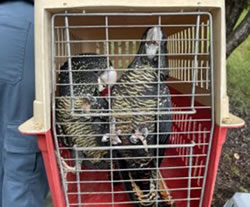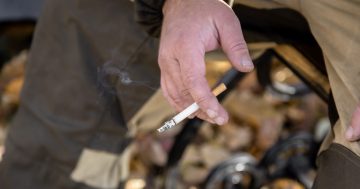 Wildlife officers from the Department of Environment and Science (DES) have taken possession of three red-tailed black cockatoos from a buyer on the Sunshine Coast who bought them from an unlawful seller on the marketplace Gumtree.
Wildlife officers from the Department of Environment and Science (DES) have taken possession of three red-tailed black cockatoos from a buyer on the Sunshine Coast who bought them from an unlawful seller on the marketplace Gumtree.
The event prompted Senior Wildlife Officer Liz Vang to warn buyers to be aware of dodgy dealers in the wildlife trade who don’t hold the necessary licences or paperwork to lawfully sell native wildlife.
“People who buy and sell native wildlife must have the lawful authority to trade including appropriate licences and paperwork,” Ms Vang said.
“Wildlife officers took possession of three red-tailed black cockatoos from the buyer after an investigation concluded the seller did not have the lawful authority to sell the birds,” she said.
“If the seller does not hold the necessary licences or paperwork, the buyer should not proceed with the purchase as they will likely lose the animal and could receive a Penalty Infringement Notice.”
She said not knowing the rules about trading in native wildlife is no excuse for breaking the law by buying them.
Ms Vang said it was ‘buyer aware’ when it came to purchasing native wildlife, whether it’s bought from social media platforms, Gumtree, or someone’s backyard.
“Following an investigation, the buyer was issued with a $689 fine and the seller received a $2,067 fine.”
Ms Vang said the red-tailed black cockatoos were now in quarantine at the RSPCA’s Wacol facility and when they pass their vet checks, they will be rehomed.
She said the illegal trade of wildlife can have serious consequences for Australia’s native species.
“The maximum penalty for trading in native wildlife without a lawful authority is $13,785,” she said,
She also said people can report the illegal trade of wildlife by calling 1300 130 372.
The Department of Environment and Science said that: ”when it comes to the illegal trade of wildlife, buyers and sellers are not birds of a feather and though they might make a deal, they don’t always flock together.”
“People cannot trade wildlife without the correct permits,” the Department said.
More information about keeping native animals in Queensland can be accessed on the State Government website at this PS News link.



